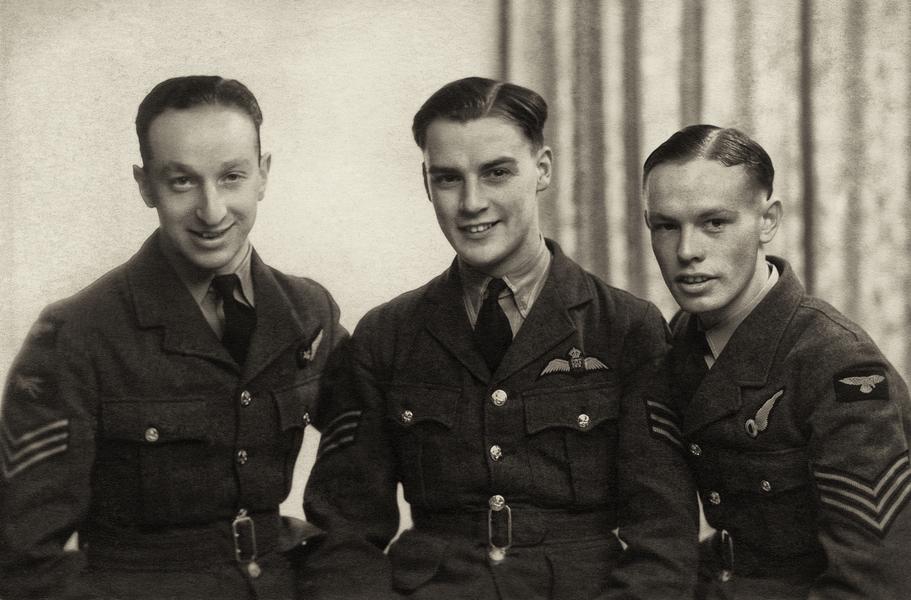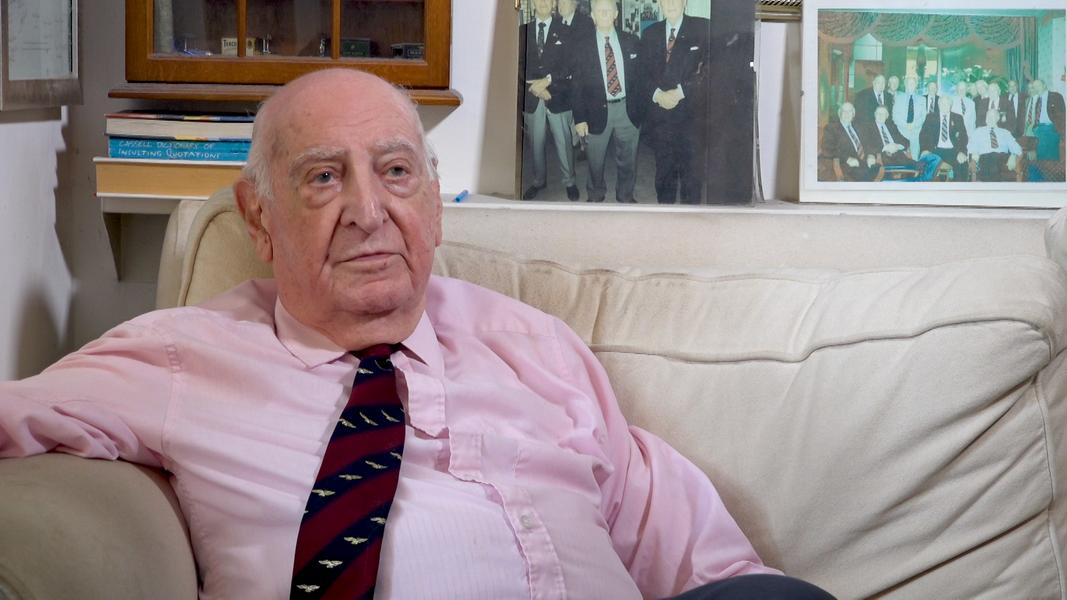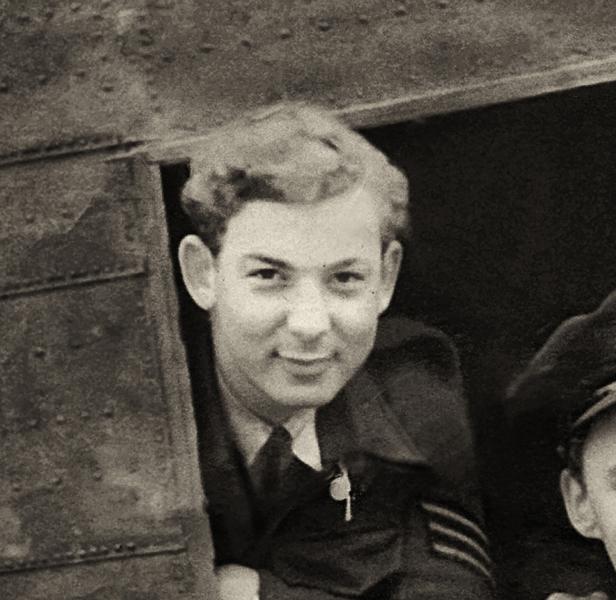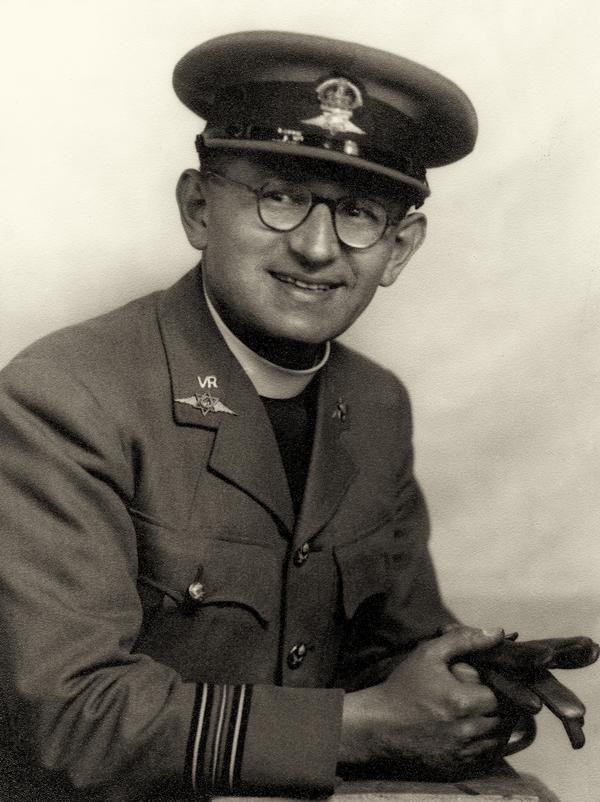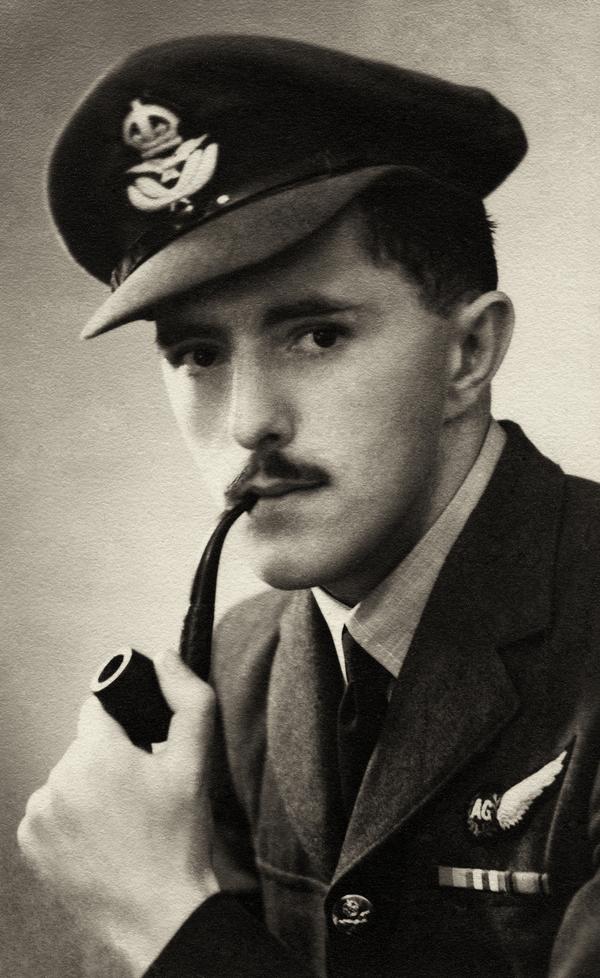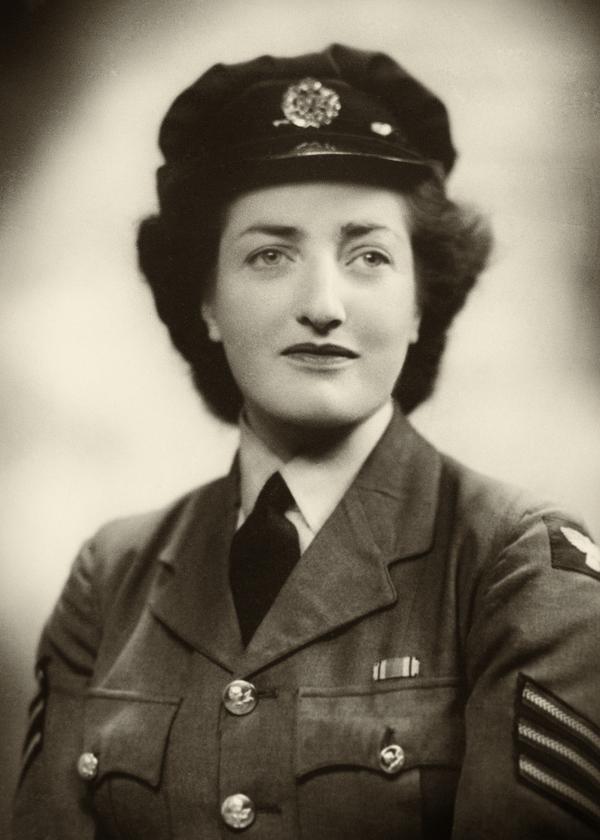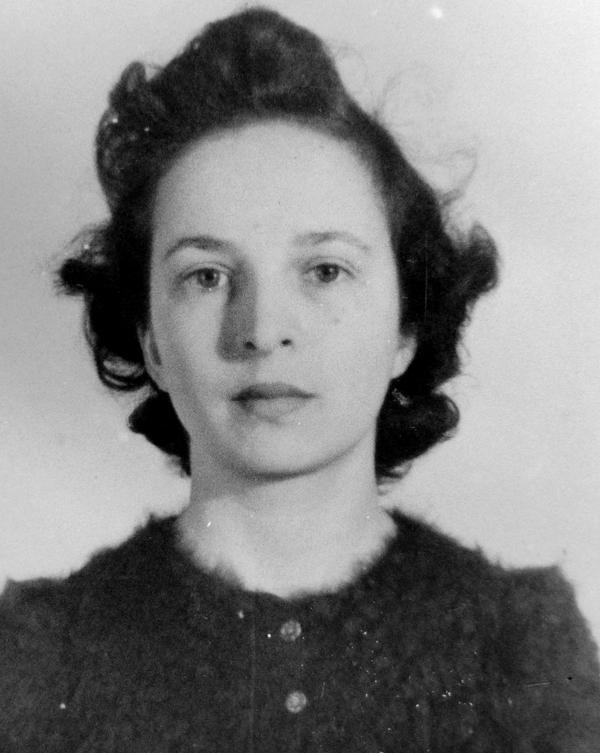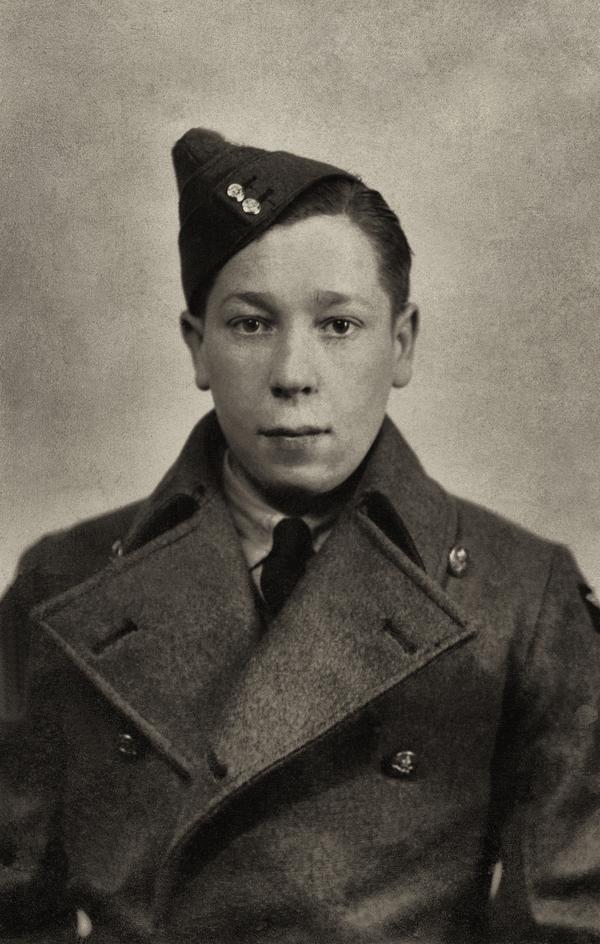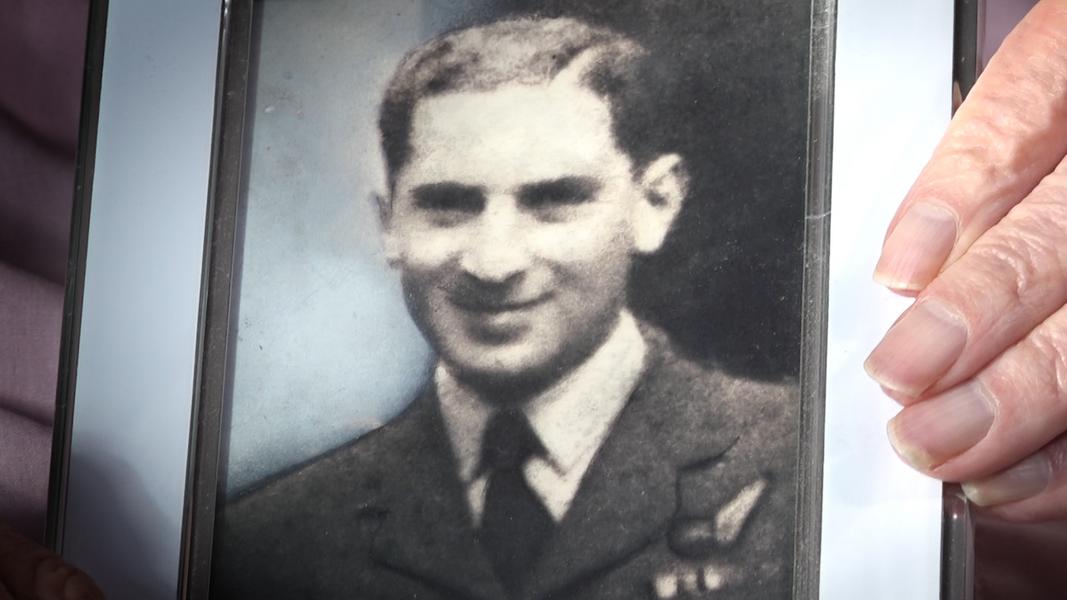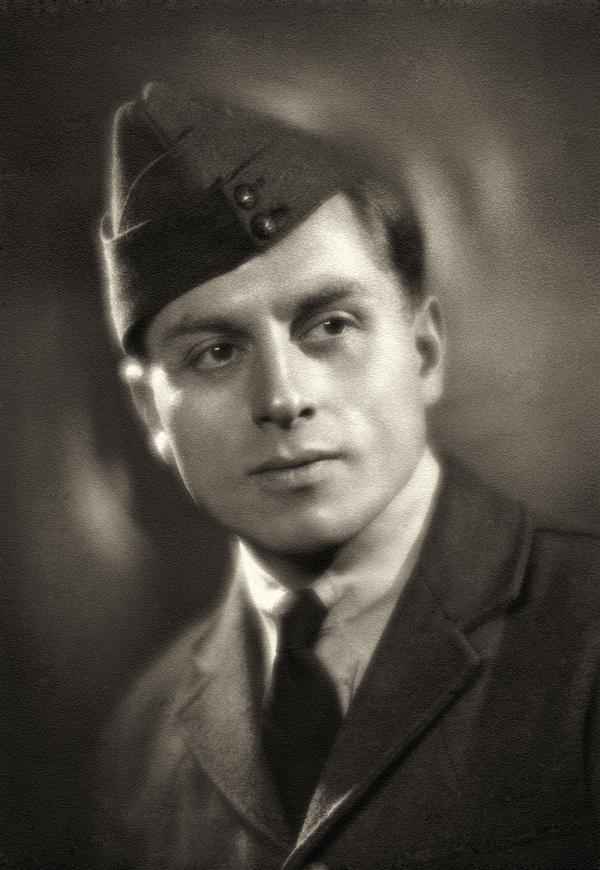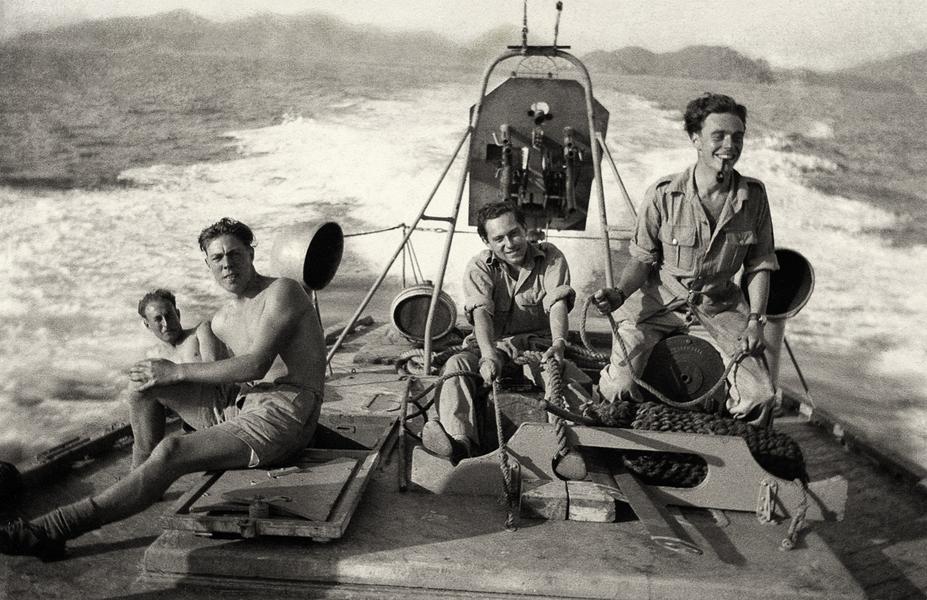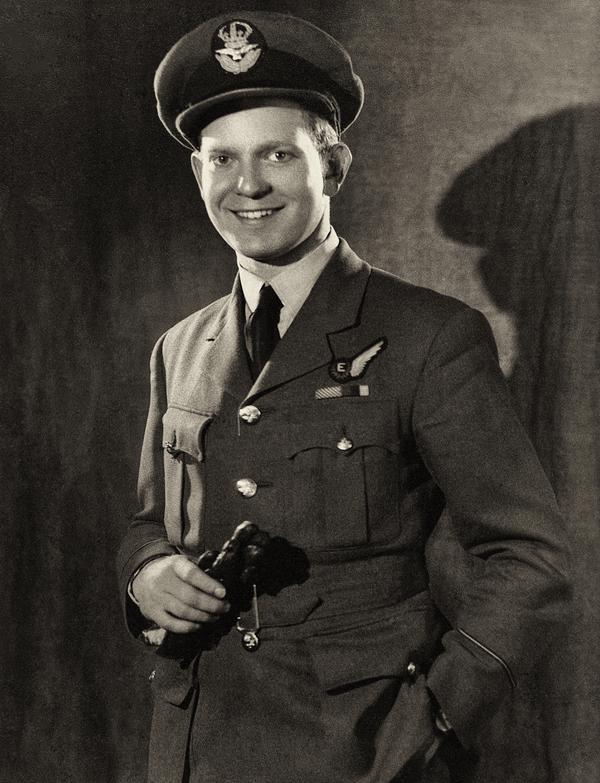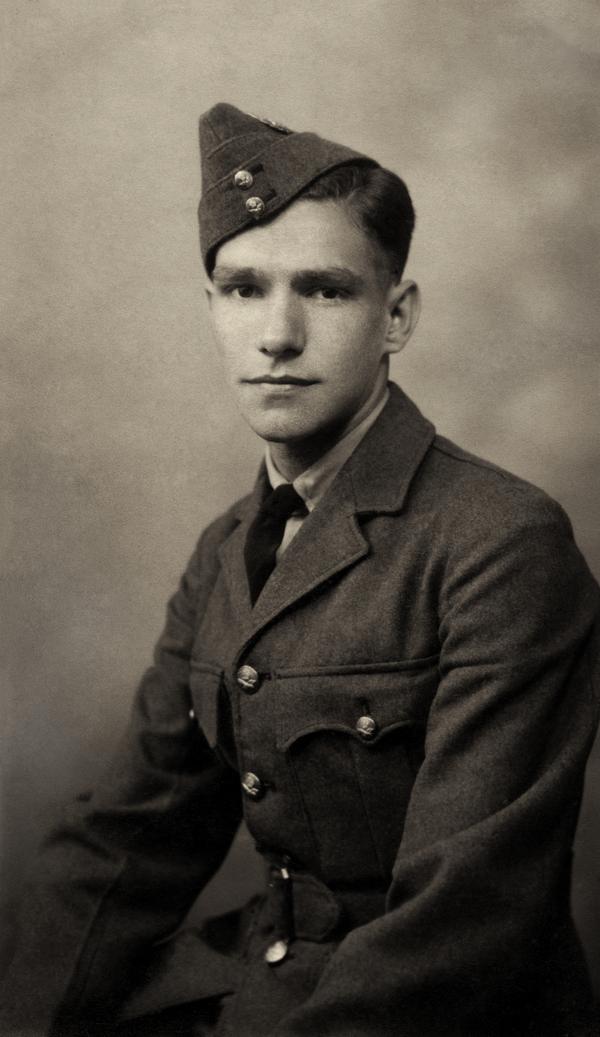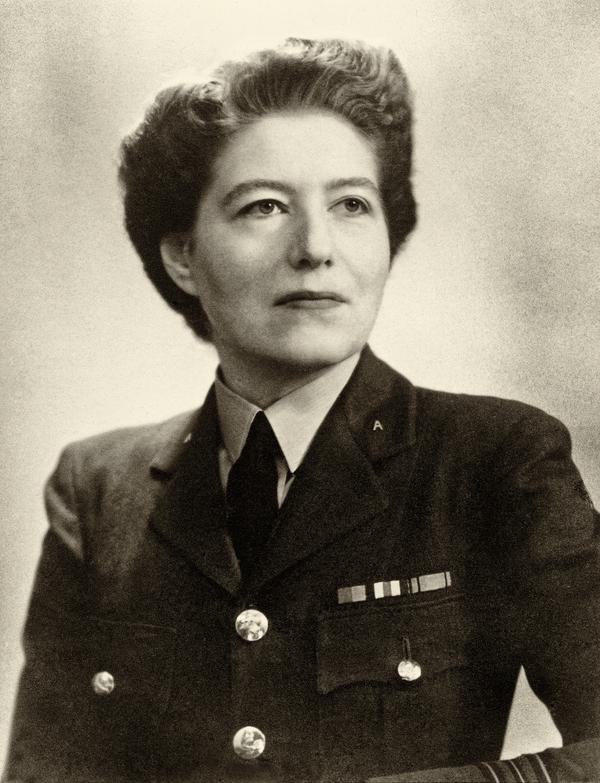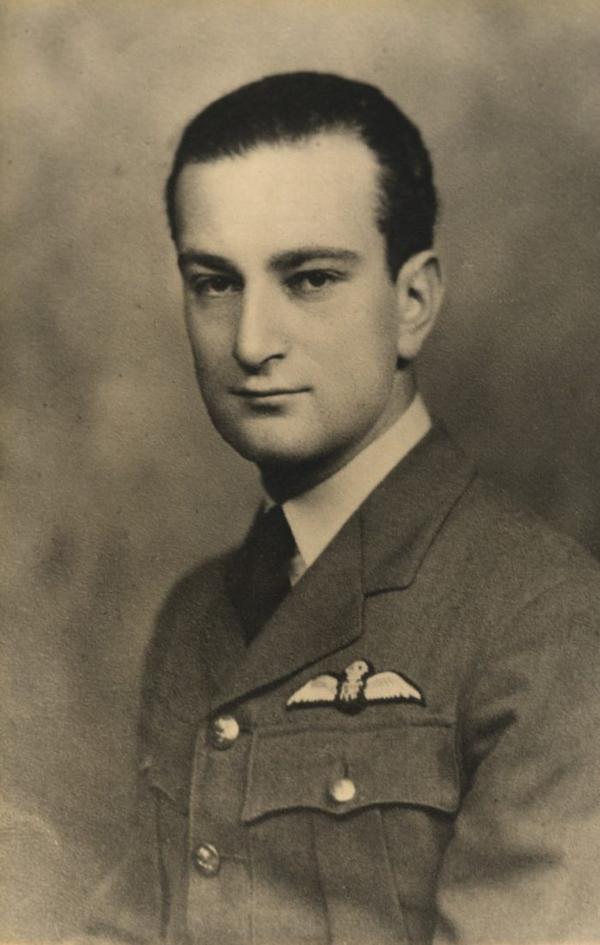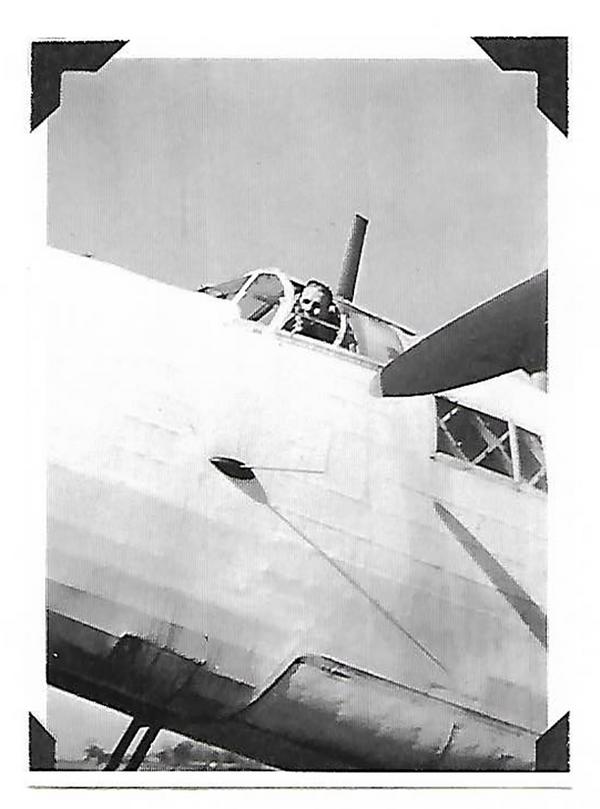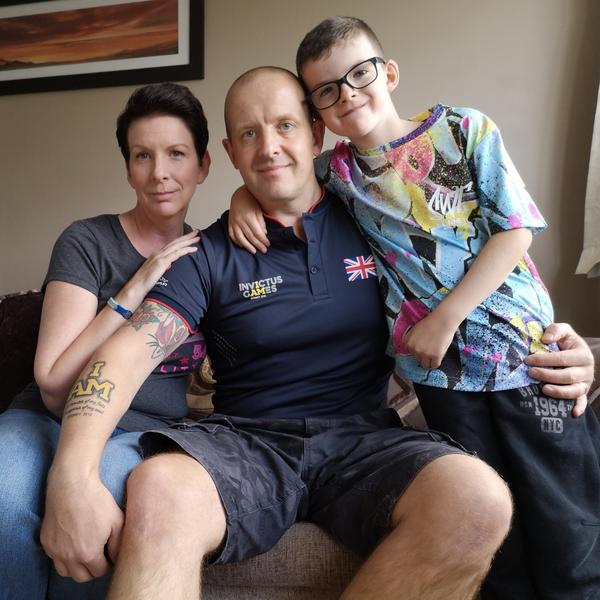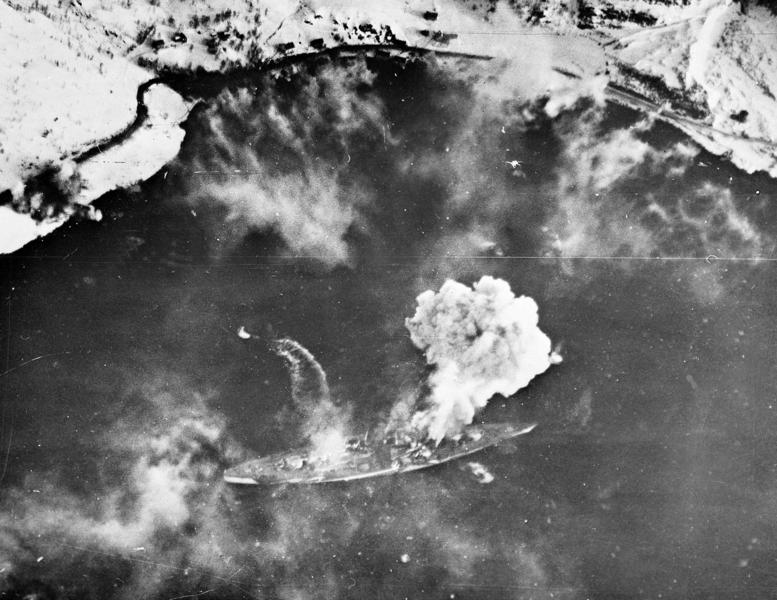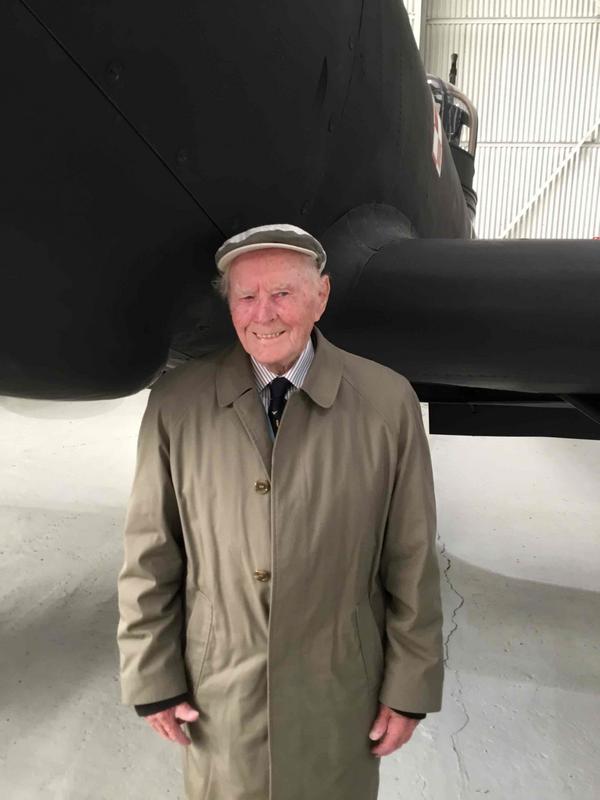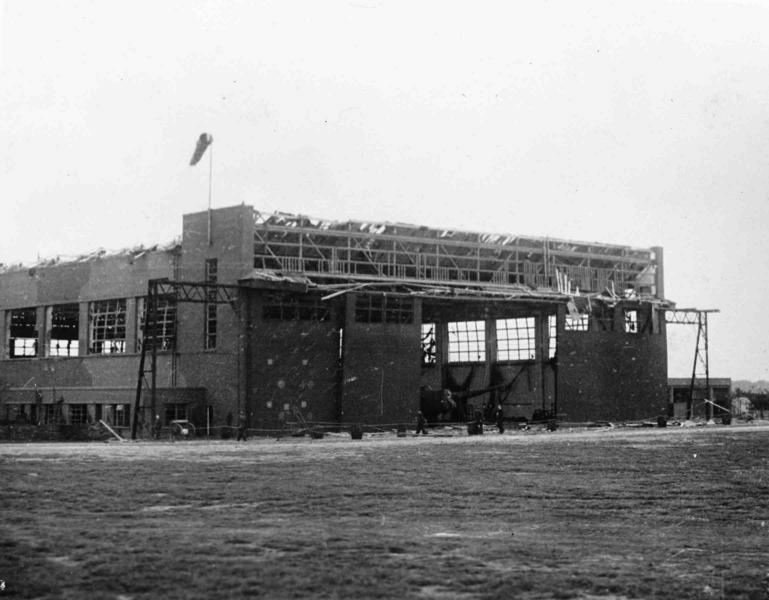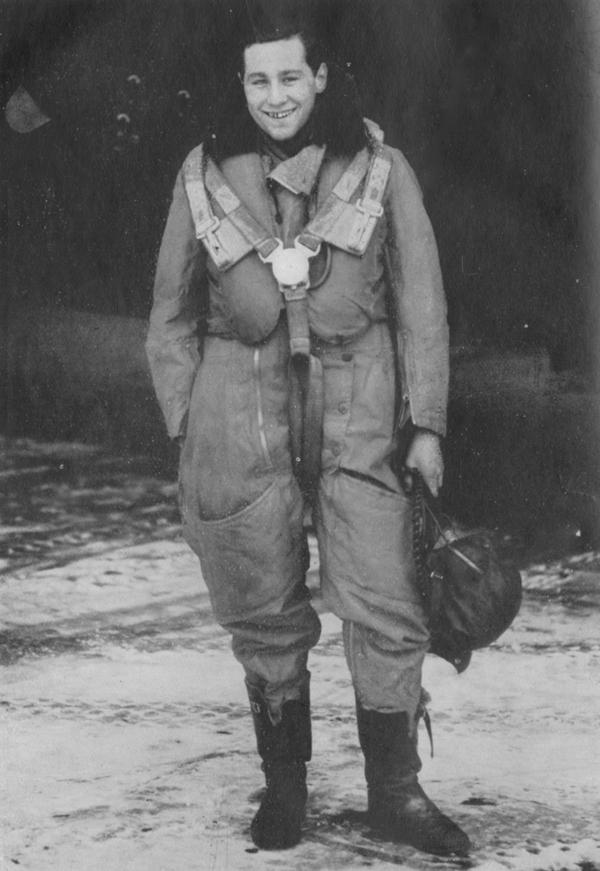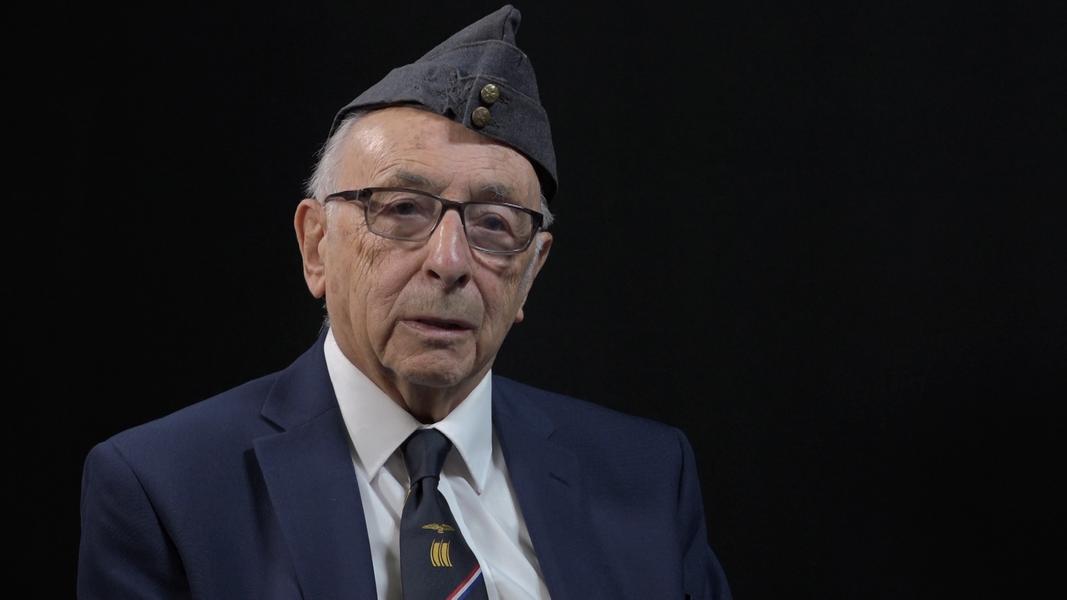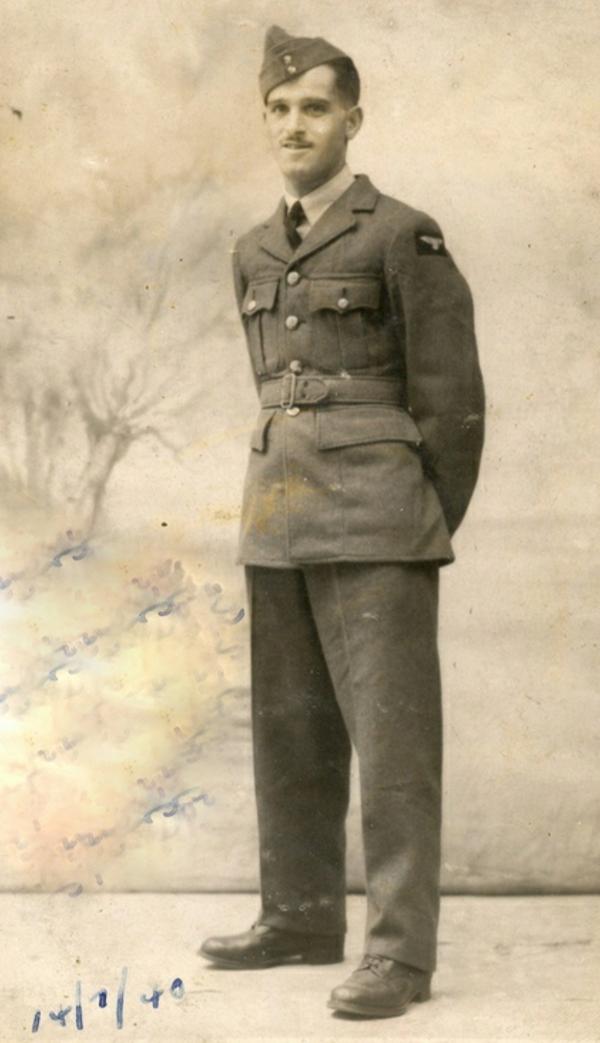He volunteered for the RAF at the start of the war
and he trained as an air gunner
before transferring to 158 Squadron,
which was based at RAF Driffield
in the East Riding of Yorkshire.
From Driffield, flying in Vickers Wellington bombers,
he took part in the first thousand-bomber raid of Cologne
at the end of May 1942.
Now the purpose of this raid,
when actually, 890 bombers reached Cologne,
was to overwhelm the city's defenses
by sending a huge number of bombers over
in a very, very short time.
600 acres of Cologne were flattened
at the loss of only 41 aircraft.
The following month, Philip's squadron
moved to RAF East Moor north of York
and reequipped with Handley Page Halifax heavy bombers.
And it was while returning from a night raid on Dusseldorf
on the 10th of September 1942
that Philip's aircraft was hit by enemy fire
and crashed into the sea near the Dutch coast.
Philip, who was a flight sergeant at the time of his death,
is remembered by a memorial
to him and his crew at Runnymede.
